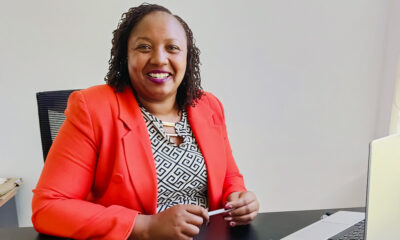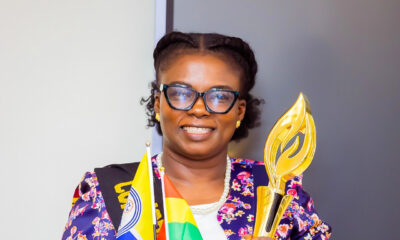Inspired
The Maisha Girls Shelter in Kenya is Changing the Lives of Survivors of Gender-Based Violence
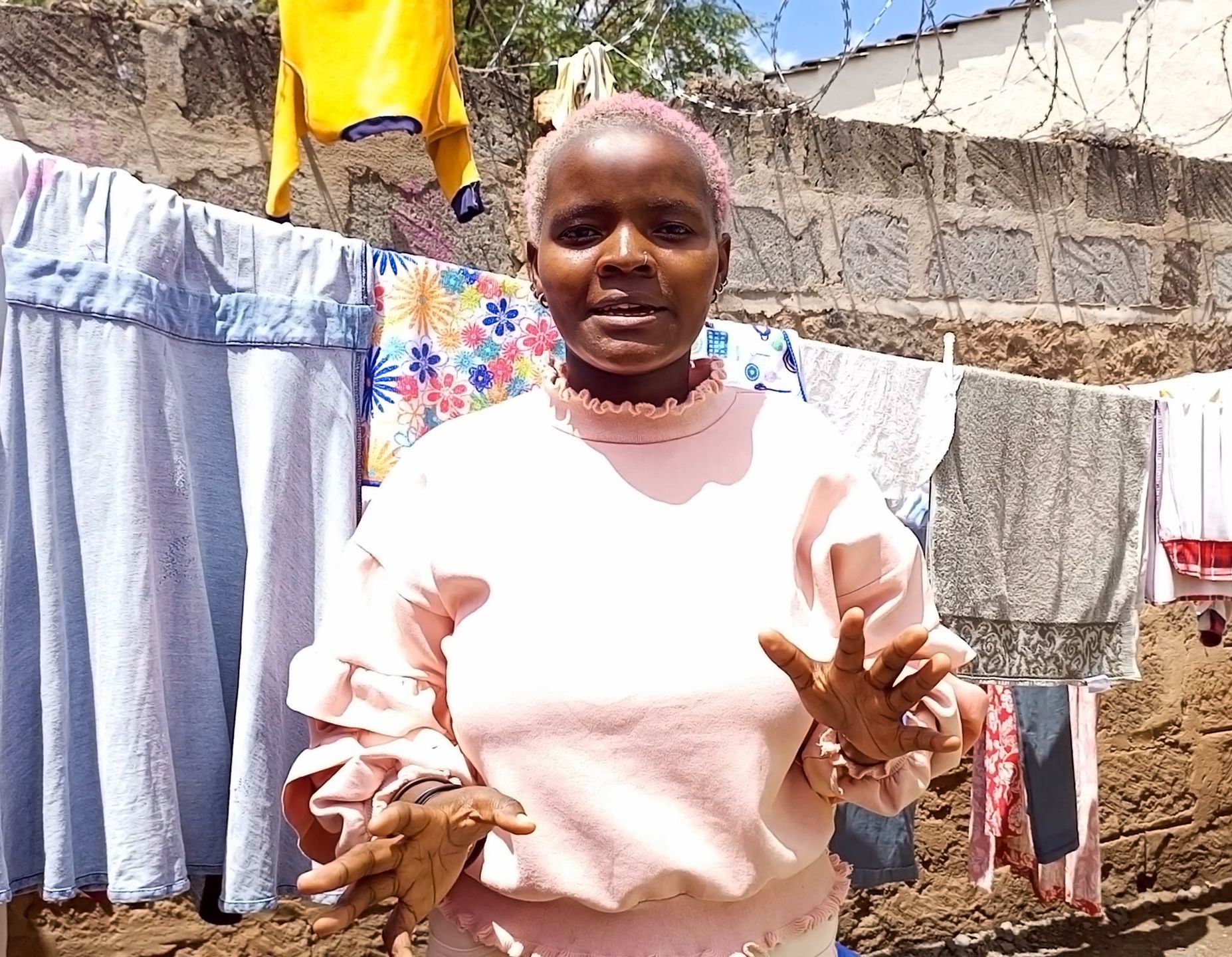
A buzz of activity creates a welcoming din at Maisha Girls Safe House in the sprawling Eastlands area of Nairobi. Young girls move up and down, to and fro, as they carry out their Saturday morning chores.
“Maisha” means “life” in Kiswahili, and the Safe House aims to offer this to its inhabitants. The shelter is a safe space where young female survivors of sexual and gender-based violence, pregnant teens, and teen mothers receive board and psychosocial support.
One of the inhabitants of this shelter is Jane Juma (not her real name), a 17-year-old survivor of sexual violence. She became pregnant as a secondary school student after a night whose events she cannot recall.
‘My boyfriend invited me to his place during the holidays last year. I went over, we hung out, and I ended up sleeping with him, “she said.
Jane added that she did not want to sleep with him and does not recall the details of that night. She only remembers the morning after.
Putting the incident behind her, she reported to the school, but weeks later was sent home due to fee arrears. While at home, she discovered she was pregnant.
“I did not get my period, and to rule pregnancy out, I bought a home testing kit. It came back positive,” she explained.
Her baby’s father was present during the testing, and they both agreed to keep the pregnancy. But Jane felt she had no choice but to run away from home. She was afraid of her mother’s reaction to her pregnancy and did not want to face the stigma that would come with being a pregnant teen.
Unbeknownst to Jane, after she left, her mother started looking for her and her boyfriend. They were living together in a different neighbourhood about 20 kilometres away at the time. Her mother found out where the boyfriend worked and went to confront him, demanding to know where her daughter was. Angry, she threatened to have him arrested. In Kenya, the Sexual Offences Act No. 3 of 2006 gives the minimum age of consent for sex as 18 years.
Though Jane returned home, her mother took her 23-year-old boyfriend to the neighbourhood police station on defilement charges.
The term defilement in Kenya refers to sexual intercourse, consensual or not, with anyone under the age of 18. Depending on how old the victim is, the punishment for the crime can range from life in prison to 15 years in prison.
In a series of court sessions, Jane testified against the father of her baby. In cases involving children’s testimonies, court hearings are restricted to the plaintiff, defender, their lawyers, a social worker, witnesses (if any), and the judge. Jane was able to testify and shared her experience and concerns with a therapist—information that remains privileged.
A visit from a children’s services officer resulted in Jane moving into Maisha Girls Safe House, due to her fraught relationship with her mother.
“I got into constant fights with my mum and they felt it would be safe for me to come here until she calmed down,” she explained, adding that the shelter also saved her from the stress of the pregnancy, stigma and open humiliation of pregnant teens in her neighbourhood.
For Diana Maulo, also 17, staying at the shelter has given her a new outlook on life. When she fell pregnant in the final year of her secondary education, she thought her life had come to an end.
“Both my parents are dead, and I had come to Nairobi to stay with my sister. She took me to school and took care of me, “she explained.
Diana said she had no idea she was pregnant until a neighbour called her sister aside and told her.
“When I told my then-boyfriend, he dumped me and did not want anything to do with the baby. I ran away from home. I felt as if I had become a burden to my sister, who had other responsibilities,” Diana continued.
She ended up at the home of an older man who had taken her in as a domestic employee. Unfortunately, he wanted to take advantage of her.
“I was a young, unmarried, pregnant woman desperate for a job. He wanted to sleep with me, but I screamed the house down and he had no option but to let me go,” she said.
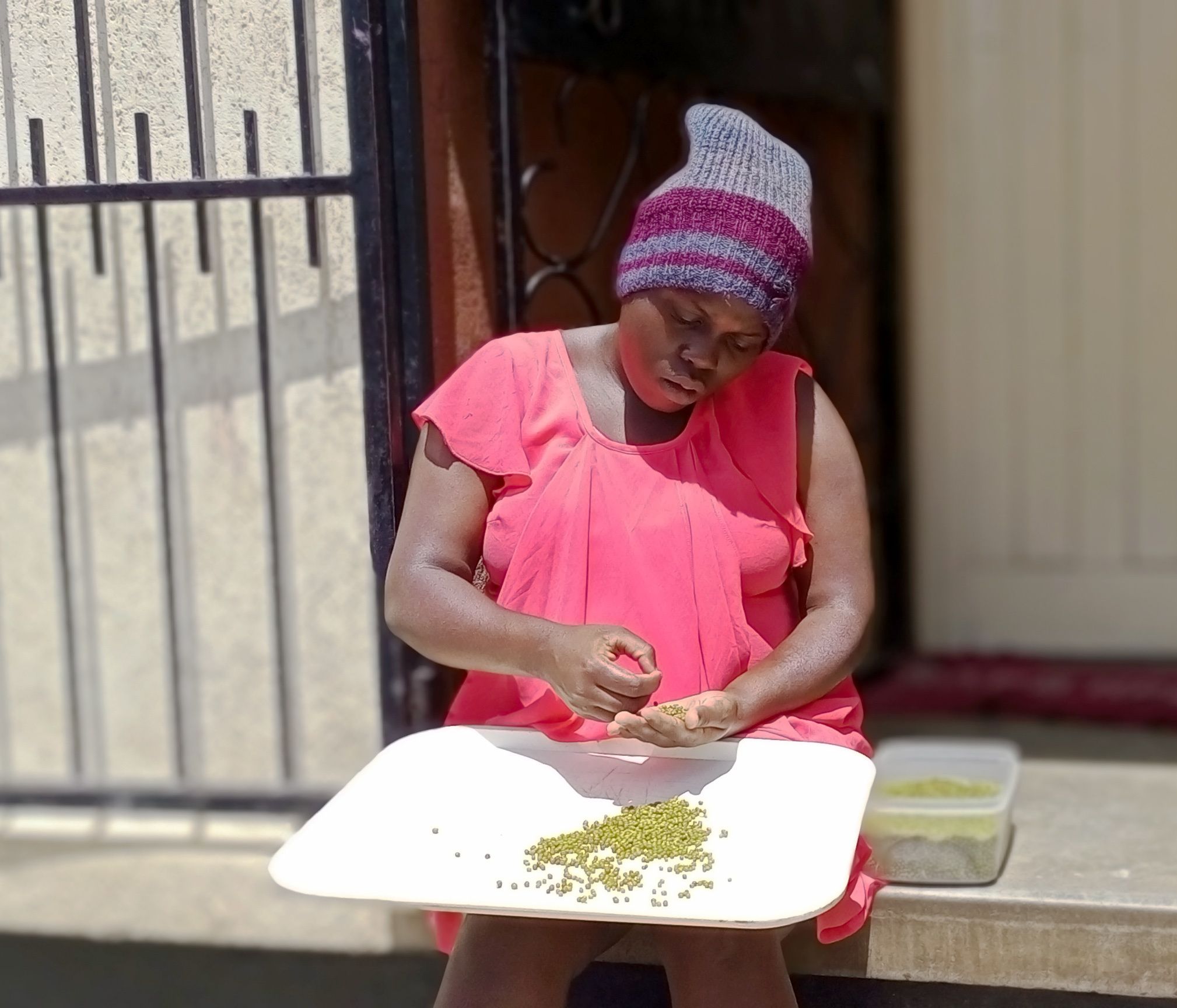
In a twist of fate, one of her cousins learned of her situation and took the news back to Diana’s sister. Her sister took her to see a woman who advocates for young girls. The woman knew of the Maisha Shelter and took Diana there for her safety.
“Before coming here, I contemplated suicide. I was tired of all the people who wanted to take advantage of me and of feeling like a burden on top of all the stress I was experiencing as a result of the pregnancy,” she added.
Jane and Diana are not at all unusual. The Kenya Demographic and Health Survey (KDHS) 2014 shows that one in every five girls between 15 and 19 years is either pregnant or already a mother.
Teen pregnancies come with some complications, including stigma. Pregnant teens are often looked upon as promiscuous, irresponsible, and bad examples for other children. Besides the stigma, they also have to contend with stress and isolation, which hurt their health.
The Genesis
The Maisha Girls Shelter was registered in 2016 in response to cases of sexual and gender-based violence (SGBV).
According to the KDHS 2014, 4% of women and 2% of men have experienced violence by the age of 18, with 2% of women and 1% of men have experienced sexual violence by the age of 15.
The country has in place several laws and policies to address SGBV, including the Sexual Offences Act 2006, which spells out the types of and punishments for different sexual offences. Other initiatives to address SGBV include gender desks at police stations to make reporting easier and the establishment of gender-based recovery centres at hospitals.
Even with these measures, the cases are still high. The Kenya Health Management Information System—which captures data from health facility visits—indicated that over the last year, about 9,500 children aged 12-17 were “sexually violated”.
Florence Keya, founder and director of the Maisha shelter, is herself a survivor of sexual violence. She was an adolescent at the time of her assault, and she faced huge obstacles in her attempts to heal. Then she saw that what she had experienced was being experienced by others.
“I managed to go to university through a scholarship. After I graduated, I came back to the community I was raised in, called Majengo, here in Nairobi. I still saw quite a several violations going on,” she said.
“I always felt that if I had the chance, I would help a girl going through what I went through. I wanted to be someone they could talk to and someone to help her make sense of the world. The shelter started from my house, where I used to offer accommodation to survivors of SGBV,” Keya explained.
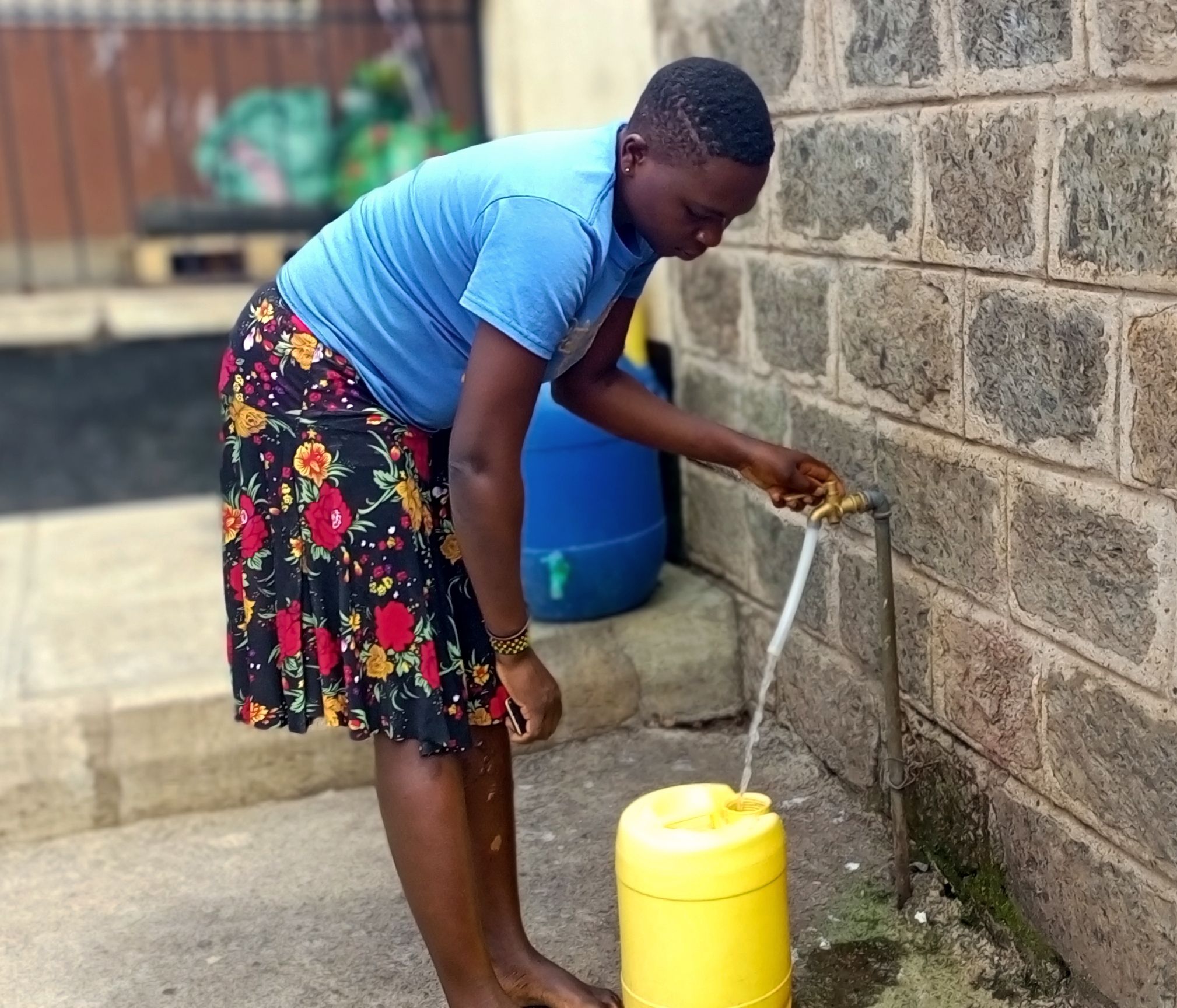
She operated from her house between 2014 and 2018, giving vulnerable girls and survivors short-term accommodation as they figured out the next steps in their lives.
In 2018, they moved to a new location in Nairobi’s Eastlands, where they acquired a spacious house that could accommodate more girls. It comes with a living room, where the girls eat, chat, and watch TV; three bedrooms, two for the girls and one for the caregivers; a toilet, bathroom, and a kitchen. It also features a tent outside where the girls can relax or study.
Although the shelter can comfortably host 16 girls at a time, Keya said they have been receiving more girls to host.
“During COVID-19 and until today, we have been receiving very many girls who are pregnant, those with babies, and those who have been sexually violated. There were very many cases of sexual violations during the lockdown period,” she explained.
The African Union indicates that in 2020, Africa and the world experienced an unprecedented surge in violence against women and girls as a result of the lockdown and movement restrictions to contain the spread of the COVID-19 virus. The GBV cases reported to the police or through the toll-free lines by the gender ministries in the East African region went up by 48 per cent.
In April 2022 alone, Keya said, they had more than 50 girls in the shelter and were forced to find extra accommodation for them.
The shelter supports girls as young as 10 years old. So far, more than 400 girls have passed through the shelter, including some from other countries. At the moment, the shelter is home to three non-Kenyans aged between 14 and 16 years. They include a Tanzanian and two Ugandans who were promised jobs in the country only to end up as survivors of sexual violence.
Yvonne Kabere, a case holder from the centre, says girls who come to the centre are offered various types of support.
“For pregnant teens, we offer them temporary accommodation and a safe space where they can grow with their babies. For survivors of SGBV, we offer psychosocial support through their journey of recovering from the trauma,” Kabere explained.
Once a girl arrives at the centre, usually brought in by a children’s officer or an officer from a hospital handling their cases, such as Medicins Sans Frontiers, they are briefed about the facility.
“We assure them of their safety and help them acclimatise to the set-up and the other residents,” Kabere added.
The girls receive support in following up on their cases as they pursue justice after the violation. They also undergo one-on-one counselling and, in some cases, group counselling according to their ages. They also receive support in accessing medication and treatment, with the shelter catering for all costs, including prenatal, delivery and post-natal care.
Those who are in school get to go back to learning, leaving their children at the safe house for care.
To support these interventions, the shelter has in place two caretakers called “aunties.” Their role is to ensure the shelter is clean and to check on the girls and their needs. The care mother—one of the “aunties”—runs errands, including taking the girls to the hospital, representing them in school, and making sure they have food.
The other “aunty” oversees mothers with children aged zero to six years old. Her job is to help the young mothers take care of their children. She does this by teaching them how to breastfeed their babies and making sure they keep clean.
Founder Keya said their efforts are bearing fruit in helping the young girls.
“When you admit a girl who is broken and who has gone through defilement, and after some time you see her smile, you see her recollect herself and pick up the pieces; that is success to me,” she said.
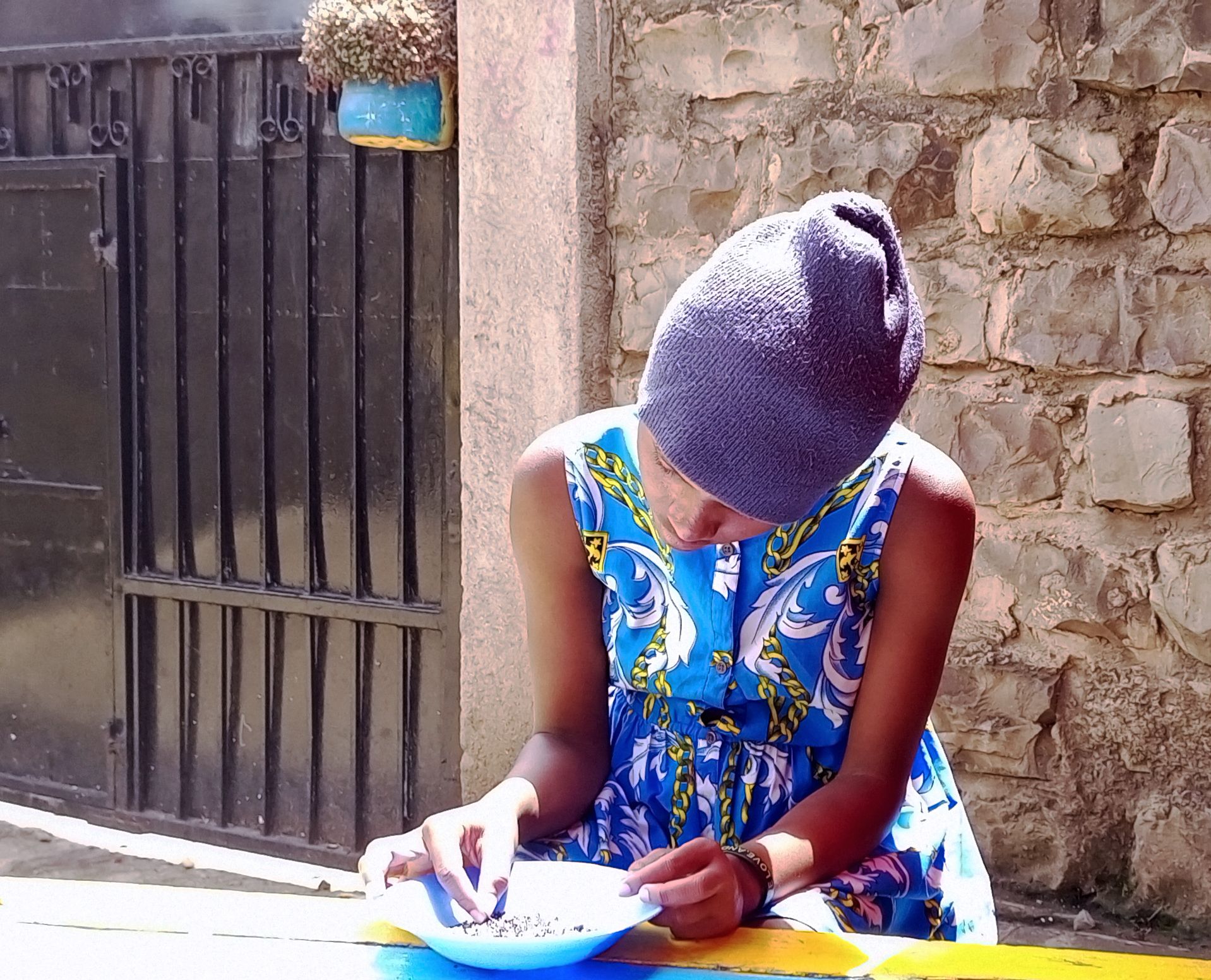
So far, they have taken 50 girls back to school. Those who were not able to or did not want to return to school were reintegrated back into society or referred to other institutions.
She added that she has been attaching the girls to programmes on sexual and reproductive health and rights, where they get to learn more about their sexual health. She’s partnered with organisations such as Trust for Indigenous Culture and Health (TICAH), which helps in identifying girls who have gone through sexual violence in the community so they can get the help they need. Such programmes have also empowered young girls with knowledge and confidence to demand sexual and reproductive health services.
But the success did not come easily. When setting up the shelter, Kera said she faced obstacles because people did not understand the need for a safe house.
“They kept asking why can’t the girls go back home or be taken to a children’s home. Others did not understand the concept of a shelter, and it took a while to have it registered,” she explained.
Keya also added that they face daunting funding challenges.
“You cannot work alone with such an institution. You need to refer the girls to services offered by other people, including medical care and justice,” she explained. Delays in court cases also impact their service provision.
“I want a future where the girls who come here receive holistic care and when they leave, they can conquer their world,” she said. For Jane and Diana, the future is bright.
Jane plans to go back to school once she has given birth and her child is old enough to stay home alone. She wants to be an accountant. She is due next month (July) and is currently involved in beadwork, crocheting, and weaving activities at the shelter.
Diana, on the other hand, has already sat for her secondary school exams and is currently at a vocational training institute undertaking a course.
“I want a good life for my baby. I want to get a job and give my baby a good life,” she said in conclusion.
[This story was provided to bird by Storify, an agency under Africa No Filter]
Photo/Story Credit: Nduta Waweru


